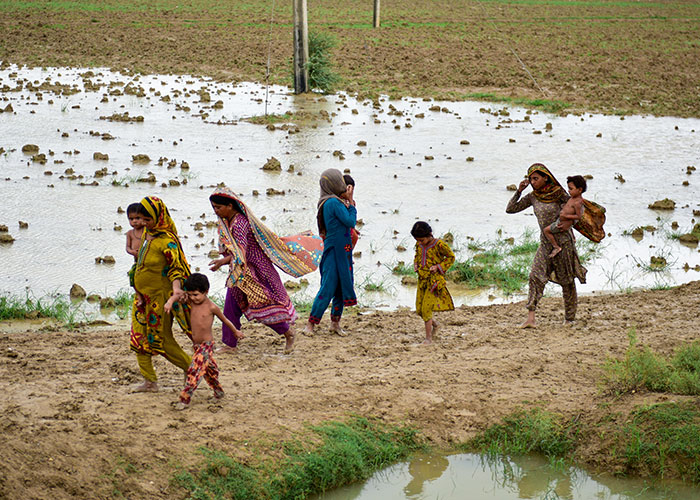“In certain parts of the world, natural hazards are testing communities’ resilience; in Pakistan, swathes of cropland were submerged following devastating flooding last year, whilst in Somalia pastoralists continue to move from one desiccated field to the next in search of somewhere to plant their crops in the face of intense drought. Both scenarios result in major losses for families who depend on agriculture as a source of income and food. These hazards are becoming more frequent and intense for predominantly lower-income countries, with the past eight years being the warmest on record. Meanwhile, 828 million people in the world don’t have enough food.
“There is a direct link between rising cases of hunger and climate change; we cannot tackle one without the other and the time to act is now.
“Despite this, world leaders are turning their backs on unlocking new finance streams to mitigate the effects of climate change and hunger. We have seen how successful this can be through climate adaptation projects in places like South Sudan where rice has been grown in floodwater.
“With the Paris Summit for a New Global Financing Pact concluding, it is imperative that we set up a loss and damage fund in the form of grants and increase funding for climate change adaptation. This serves as an acknowledgement that there are some parts of the world which experience climate change and hunger with greater intensity and frequency.
“As global temperatures rise at the same time as the number of people going to bed hungry every night, we need renewed urgency and commitment from world leaders to tackle climate change and hunger once and for all.”
“To put this into perspective: if global temperatures keep rising to hit the 2°C mark, an additional 189 million people could face life-threatening hunger. In a 4°C warmer world, this could rise to as many as 1.8 billion people.”
Case study from Pakistan
Some countries are disproportionately affected by climate change and increased hunger levels, whilst the countries who emit the highest level of greenhouse gas emissions do not provide appropriate funding to correct this imbalance.
Pakistan is one such example of a country which is at greater risk of climate change-caused emergencies as it contains more glacial ice than anywhere else in the world – outside of the polar regions. If we add under-resourced governance systems and a lack of humanitarian and development funding to the equation, then we see a country buckling under the strain of increased needs. Even before the flooding in Pakistan, over four million people did not have enough access to food. We now know that approximately 33 million people were affected by the flooding, with levels of malnutrition soaring following submerged cropland and increased prevalence of waterborne diseases which deprive the body of vital nutrients as it seeks to flush out bacteria.
Action Against Hunger has been working in the Sindh and the Balochistan provinces, which experienced the worst effects of the flooding. The charity supported vulnerable populations here through distribution of cash, blankets and other items for shelter, rehabilitation of water supply systems, building of latrines and the setting up of mobile medical camps. In addition, the in-country team conducted psychological first aid training, distributed hygiene kits and provided agricultural tools.
This was however a rapid response and more funding for climate change adaptation needs to be made available to protect countries like Pakistan from future climate emergencies, so that a greater proportion of the population can survive and thrive long into the future.


